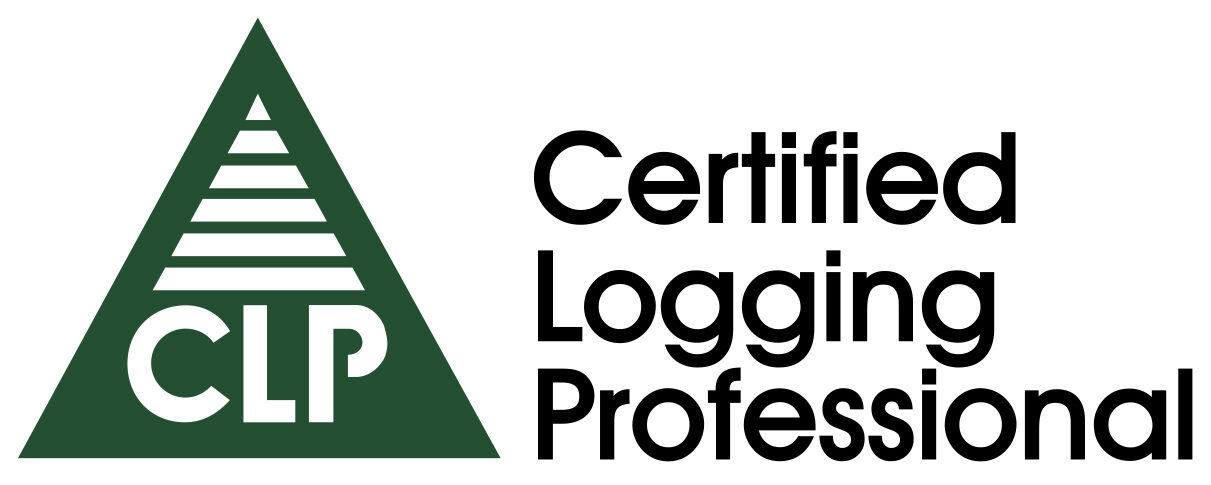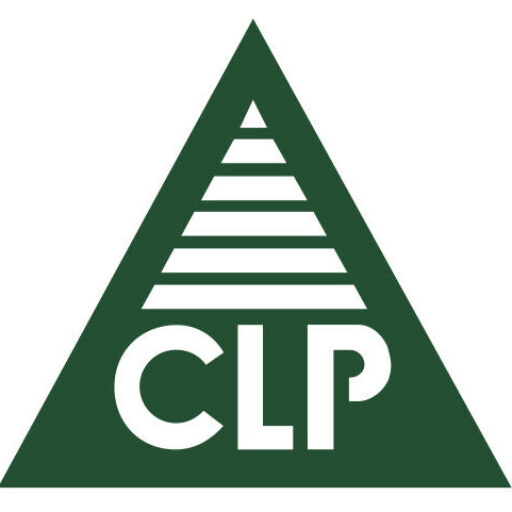Mission
It is the mission of the CLP program to provide the best possible training and education to people involved in the Maine logging industry. The program is equally committed to recognizing the skill and professionalism of those who meet and exceed the CLP standard. The successful CLP candidate will be prepared to work safely, productively, and in a manner that protects, enhances and sustains the forest. Our program will evolve to reflect changes in the forest products industry and will provide a means for continual professional growth.
History
The CLP program was founded in 1991 as a combined effort of loggers, landowners, environmental specialists and safety consultants to establish a standard for professionalism in the Maine woods. An immediate goal of the program was to combat the high rate of logging accidents and the resulting Worker’s Compensation costs for logging contractors.
Today, under the sponsorship of the Maine TREE Foundation, the program takes pride in the fact that the Injury & Illness rate for loggers is 83% less than what it was when the program began. As a result, mechanical CLP loggers pay up to 48% less for Worker’s Compensation than non-certified mechanical loggers. To ensure that the needs of working loggers continue to be met by the CLP program, the Board of Directors remains today, as always, comprised mostly of those who make a living working as loggers in our forests.
Loggers today face many more challenges than they did even a decade ago. Rules and regulations control virtually everything they do. Their work environment is fragile and easily damaged. The cost and complexity of doing business can be prohibitive. To top it off, loggers are confronted with life-threatening hazards every day at work. So, loggers trained to handle these challenges are in high demand.
Why Choose a CLP
If you’re a landowner in search of a skilled logger to work on your land, here are a few reasons to search our database for a CLP near you.
Safety – The CLP program stresses safety throughout its training and certification processes. This emphasis on safety has resulted in a reduction in accidents by CLPs that gained them a special, reduced workers compenstion rate.
Skill- CLPs receive hands-on training that allows them to develop a wide variety of skills. From layingout a site, to felling and marketing wood, CLPs have the skills to safely, efficiently and profitably conduct a harvest.
Knowledge – Regulations, technology and a complex and fragile work envirornment all pose daily challenges for the logger. The CLP program prepares loggers to meet these challenges as well as the needs of their customers.
Stewardship- Stewardship of our forest is a priority of the CLP program. That is why we provide training in wildlife protection, erosion and pollution control and sustainable forestry. We are commited to healthy forests for the future.
Professionalism- Professional standing is gained through training and experience. CLPs have both. With their extensive training and evaluations, CLPs are regarded as the true “professionals” in the Maine woods.
Pride- Pride is what makes a professional go the extra mile to maintain a safe, environmentally sound, profitable operation. Landowners can be confident that CLPs will bring this quality to the worksite every day.
Code of Ethics
1. The professional logger abides by and promotes safety standards.
2. The professional takes pride in his or her profession.
3. The professional logger protects our natural environment and enhances our natural resources.
4. The professional logger is aware of all laws and regulations relating to the profession of logging.
5. The professional logger does not perform any service for which he or she is not qualified.
6. The professional logger recognizes landowners, wood buyers, and other professionals are part of the industry.
7. The professional logger will keep up with changes in the logging profession.
8. The professional logger implements a contracted harvest with explicit intent of achieving the goals and objectives of the forest landowner, or their agent.
Advisory Committee
Tim Basham
PO Box 562
So. China, ME 04358
[email protected]
Terri Coolong
87 Airport Road
Old Town, ME 04468
[email protected]
Paul Cyr
128 East Main Street
Fort Kent, ME 04743
[email protected]
Jack Houtz
252 Nutting Hall
Orono, ME 04469
[email protected]
Bill Kimball
267 Diamond Road
Livermore Falls, ME 04254
[email protected]
Darren Maxsimic
PO Box 100
Kingfield, ME 04947
[email protected]
John Steward
PO Box 38, 4 Hill St
Millinocket, ME 04462
[email protected]
Patrick Sirois
535 Civic Center Drive
Augusta, ME 04330
[email protected]
John Starrett
PO Box 808
Farmington, ME 04938
[email protected]
William Taylor
194 Raymond Rd
Gray, ME 04039
[email protected]
Alvin Wasson
72 Davis Street
Old Town, ME 04468
[email protected]
Andy Wood
69 Meadow Road
Hampden, ME 04444
[email protected]
Associate Committee
Robin Avery
PO Box 292
Old Town, ME 04468
[email protected]
Ted Clark
77 Exchange St, Ste. 401
Bangor, ME 04401
[email protected]
Dale Currier
21 Raymond Joseph Lane
Caribou, ME 04736
[email protected]
George Merrill
127 Intervale Rd
Jay, ME 04239
[email protected]
James O’Malley
278 St. John Rd
Fort Kent, ME 04743
[email protected]
Alphonse Spencer
148 Papermill Rd
Hampden, ME 04444
[email protected]
Peter Tracy
269 Whittier Rd
Farmington, ME 04938
[email protected]

